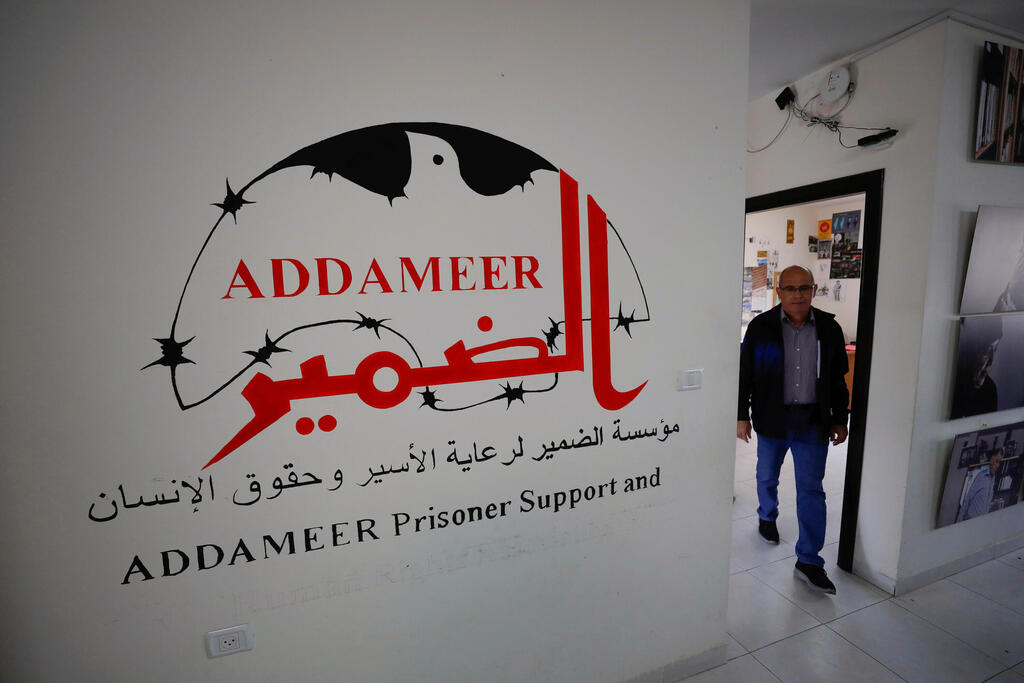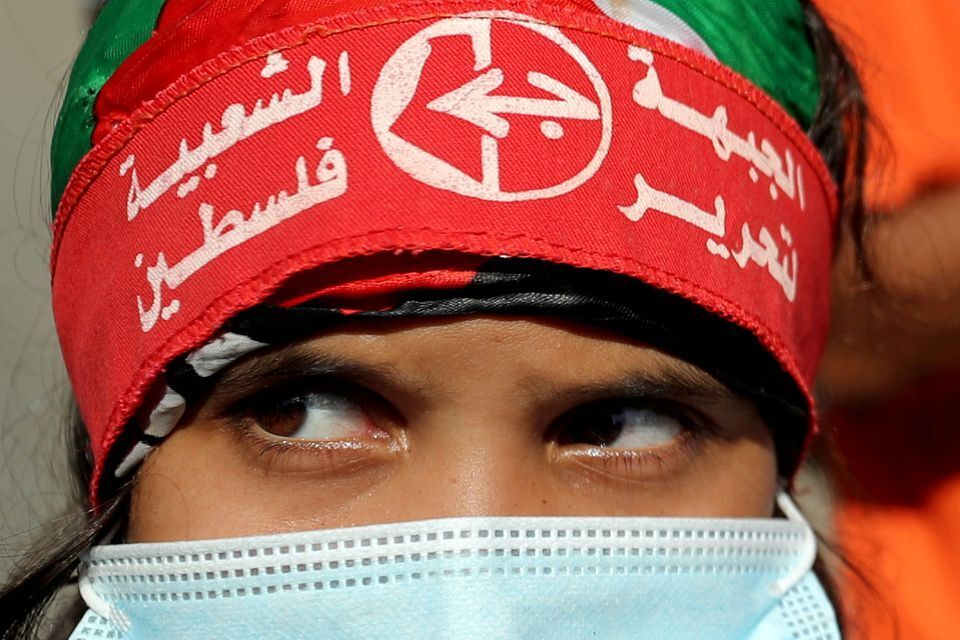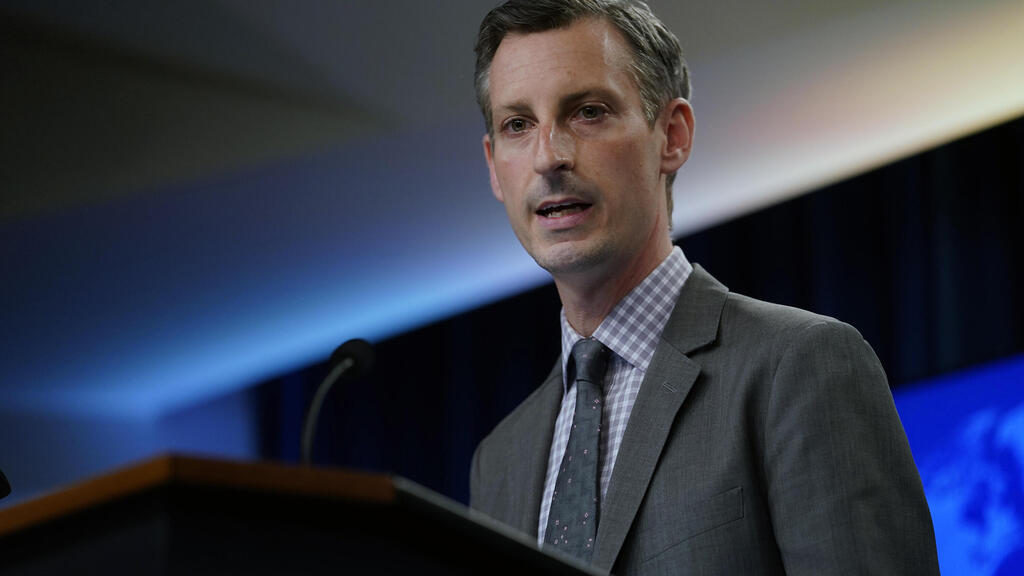Getting your Trinity Audio player ready...
A Foreign Ministry official said Tuesday Israel will send an envoy to the United States to share intelligence it says links six Palestinian rights groups to terror organizations as Washington insists it was not notified of the move.
Last week, the Israeli defense ministry made public its move to effectively outlaw the six prominent Palestinian civil society groups over alleged ties to the Popular Front for the Liberation of Palestine (PFLP), a group sanctioned as terrorists by several Western governments.
3 View gallery


A man works inside the Palestinian civil society group Addameer, which was designated by Israel as a terrorist organization along with other five groups, in Ramallah
(Photo: Reuters)
The move sparked outrage from Palestinians and some Israeli civil society groups, in addition to widespread international concern.
The United States, Israel's most important ally, said it would be seeking "more information" about the designations.
Joshua Zarka, a senior Foreign Ministry official, told Israeli Army Radio the envoy would "give them all the details and to present them all the intelligence" during his visit in the coming days.
Zarka said he personally updated U.S. officials on Israel's intention to outlaw the groups last week, and said he believed Washington wanted a more thorough explanation of the decision.
U.S. State Department spokesman Ned Price, however, said during a press briefing Monday that “It is to the best of our knowledge accurate that we did not receive a specific heads-up about any forthcoming designations".
The rights groups decision is emerging as a test of the relationship between the Biden administration and Israel's new government, which was formed in June by eight politically disparate parties. The coalition ended the 12-year rule of former Prime Minister Benjamin Netanyahu.
Netanyahu's hardline government enjoyed broad support from the Trump administration, which moved the U.S. embassy to Jerusalem, largely allowed settlement building to continue unfettered, cut funding to the Palestinians and presented a vision for the Mideast that sided with Israel's positions.
The Biden administration has mostly restored traditional foreign policy toward Israel and the Palestinians. But with the U.S. focused on other pressing domestic and foreign issues, the conflict was expected to take a backseat.
The fractious coalition government has also sought to minimize the Palestinian issue, agreeing not to make major moves that might threaten its stability. But in recent weeks, it has ramped up focus on the conflict, offering a number of goodwill gestures to Palestinians in the West Bank and the Gaza Strip and also pushing forward on building thousands of new homes for Jewish settlers.
3 View gallery


A girl wearing a protective face mask and the headband of the Popular Front for the Liberation of Palestine (PFLP) looks on during a rally to show solidarity with hunger-striking Palestinian prisoner Maher Al-Akhras, who is held by Israel, in Gaza
(Photo: Reuters)
Most dramatic was the decision on the civil society groups, which has rattled the coalition and returned focus to the conflict and Israel's decades-long occupation of territories the Palestinians seek for a future state.
Israel has for years alleged the groups' links to a Palestinian militant group but even under Netanyahu's hardline government, stopped short of labelling them terrorist groups.
The declaration appeared to pave the way for Israel to raid their offices, seize assets, arrest staff and criminalize any public expressions of support for the groups. Most of the targeted organizations document alleged human rights violations by Israel as well as the Palestinian Authority, both of which routinely detain Palestinian activists.
The groups banned last week include the Union of Palestinian Women's Committees (UPWC), Addameer, Bisan Center for Research and Development, Al-Haq, Defense for Children International – Palestine (DCI-P) and the Union Of Agricultural Work Committees (UAWC).


